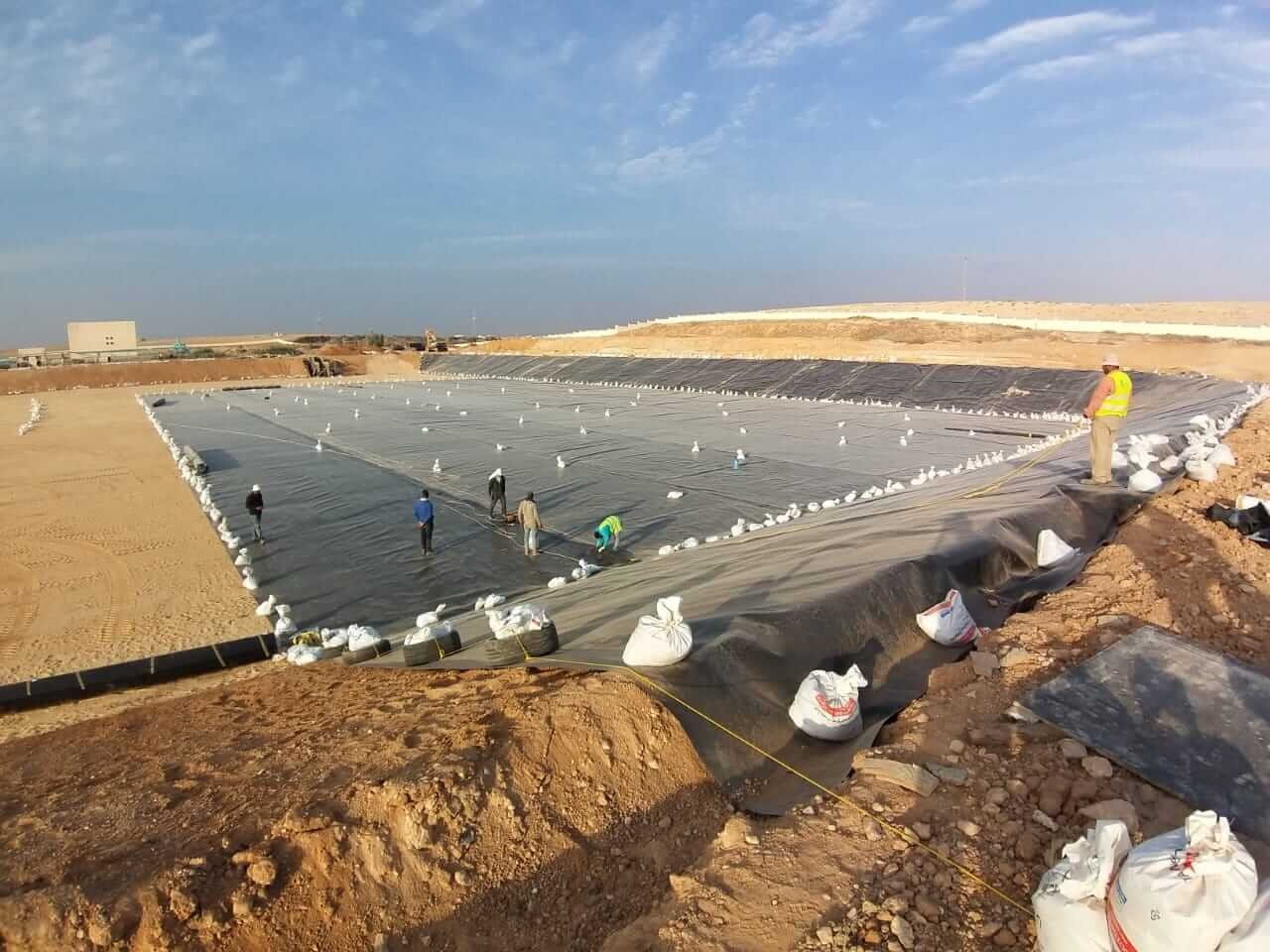Liners
Our liners
What liner is best for your application?
Geomembranes—often called geomembrane liners—are impermeable membranes used alongside rock or soil to prevent fluid migration in engineered structures. Typically produced from synthetic polymers, these membranes come in sheets measuring between 0.25 and 3.5 mm in thickness. Common geomembrane materials include EPDM (Ethylene Propylene Diene Monomer), Linear Low-Density Polyethylene (LLDPE), High-Density Polyethylene (HDPE), Polyvinyl Chloride (PVC), and Polypropylene (PP). Thanks to their fluid-blocking properties, geomembranes help limit the spread of contaminants and can be paired with soil liners or permeable geotextiles to form a composite system offering enhanced protection.
AWTT employs geomembranes to reduce the environmental impacts of development, with a particular emphasis on waste containment. Our liners are produced using highly durable materials that can remain effective for centuries, as they resist both chemical exposure and physical wear—ensuring their integrity over time. Each geomembrane type has distinct traits affecting installation, service life, and overall performance. Titan offers a range of materials tailored to the specific requirements of your project.

HDPE
HDPE liners are highly resistant to a broad spectrum of solvents and continue to be the most widely utilized geomembrane liner worldwide.

LLDPE
Produced from high-quality virgin polyethylene resins, providing exceptional flexibility along with excellent resistance to low temperatures and UV exposure.

PVC
A highly flexible thermoplastic geomembrane designed for waterproofing, it is produced using a blend of vinyl compounds, plasticizers, and stabilizers.

EDPM
EPDM geomembrane liner is an unreinforced material that offers exceptional flexibility and durability. It has a soft, rubber-like feel, much like an inner tube.
